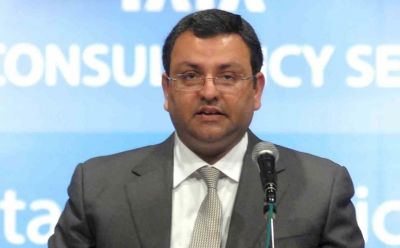New Delhi Jan 2 (IANS) At the very core of the challenge to the recent NCLAT verdict on Tata Sons, the aggrieved party’s petition focuses on a specific case for relief.
Saying that a serious error in law is the finding that Tata Sons continued as a ‘Public Company’ even after the change of law, and on that basis, coming to a further finding that the action of the Registrar of Companies (RoC), Mumbai, taking on record this change was illegal.
The petition argues that the judgment of the NCLAT is directly contrary to the judgment of this Hon’ble Court (in the case of Darius Rutton Kavasmaneck vs Gharda Chemicals Limited and Ors (2015) 14 SCC 277) which settles the issue.
If Tata Sons is accepted to be a ‘Private Company’, then the Articles of such company which were in play at the time Cyrus Mistry was appointed are beyond any challenge.
The suggestion that any of the terms of the Articles are either extreme or could lead to potential prejudice or that exercising powers contained in the plain language of the Articles is in any manner contrary to any principle of the Company Law, is a serious error of law in the impugned judgment.
It is obvious that the error in coming to the conclusion that Tata Sons continued to be a ‘Public Company’ has clearly influenced the NCLAT in coming to a number of conclusions, which would perhaps have been beyond its realm in the case of a ‘Private Company’.
Furthermore, Tata Sons’ challenge is predicated on the fact that any shadow over the management of any of the Tata companies at this stage through a change in top management will put public interest in jeopardy.
It further added that the direction to restore Cyrus Mistry for his remaining term, without noticing that the term has come to an end, is a recipe for disaster for the reason that it will create unnecessary confusion in the working of companies and lead to more conflicts.
The companies, as noticed by the NCLAT, are large corporations having many subsidiaries and that Tata Group employs half a million people and contribute substantially to the economy of the country. Any shadow over the management of any of these companies puts public interest in jeopardy.
The NCLAT ought to have analysed the consequences of such a sweeping direction given by it upon the public perception in the manner of running of these companies. The direction to restore Cyrus Mistry, for this reason, without more, deserves to be set aside.
The petition filed with the Supreme Court, which contests the NCLAT judgment, aggressively goes on to say: In the alternative, if the direction is construed as a carte blanche direction to restore him by extending Cyrus Mistry’s term, such a direction would be plainly illegal. The consequence of the direction is to put back Cyrus Mistry as a Director of a slew of companies and not merely Tata Sons. Any extension of the tenure available at the time of initial appointment would be ultra vires the jurisdiction of the NCLAT and would have to be set aside for that reason without more.
–IANS
arm/

